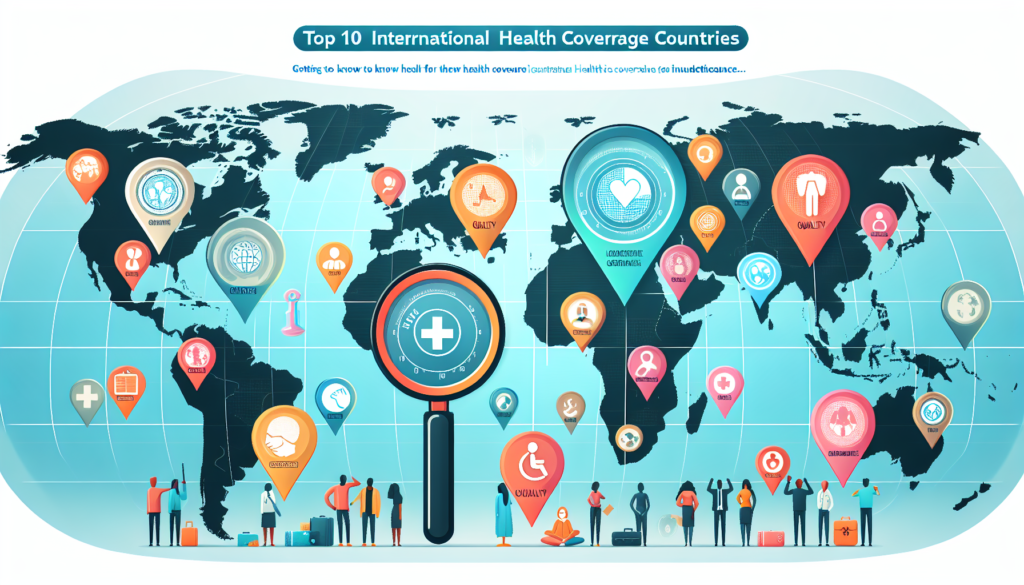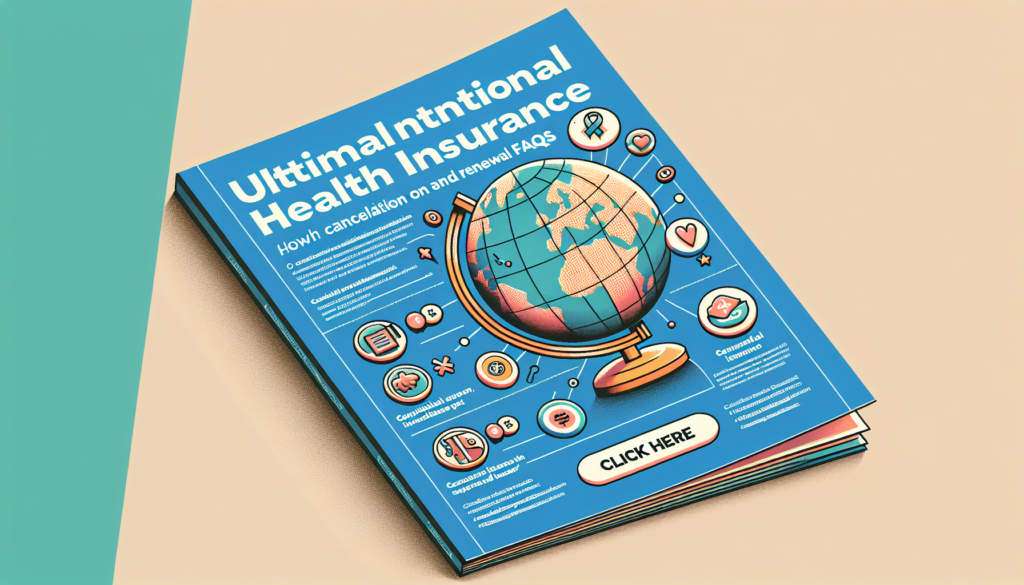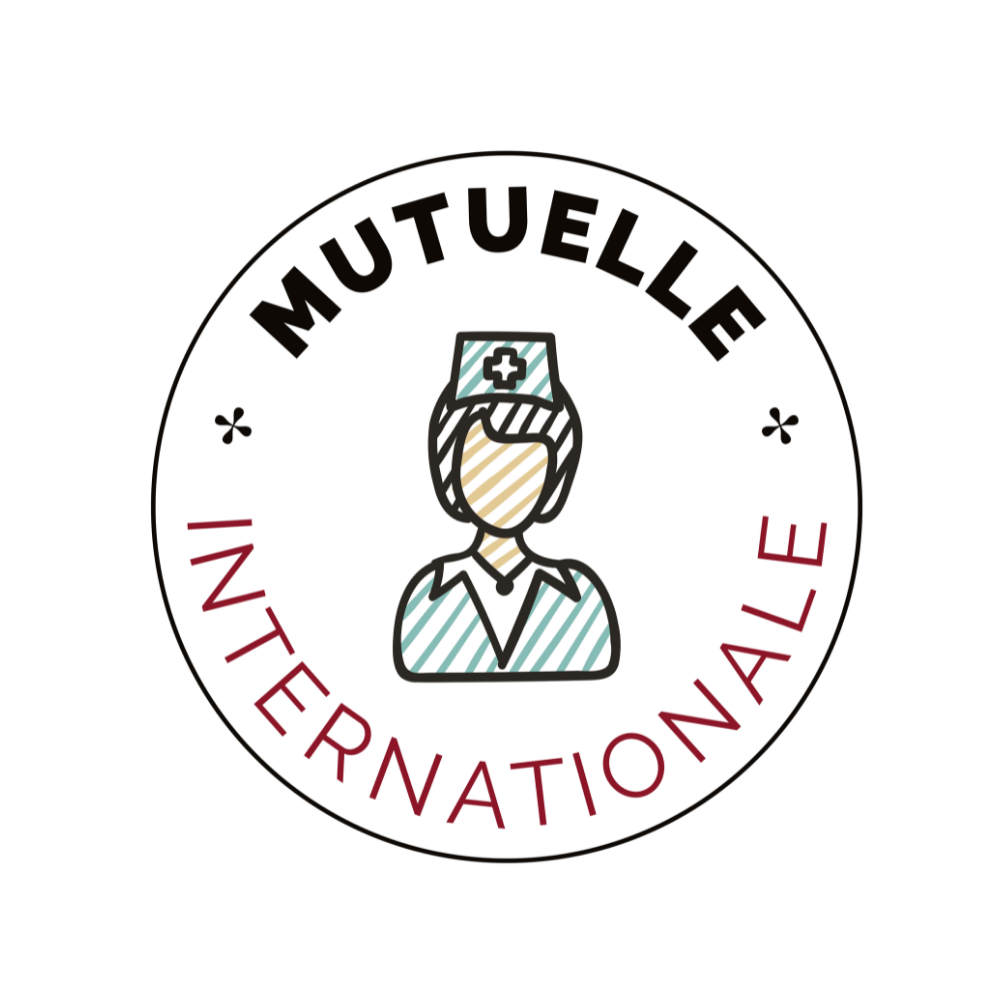Find out everything you need to know about international health insurance and country-specific questions. A comprehensive guide to help you easily navigate the complex world of overseas health coverage.
Criteria for good coverage in Europe

Assessment of quality of care in Europe
The quality of medical care varies considerably between countries in Europe. It is essential to choose international health insurance that provides access to the best healthcare facilities, regardless of where you travel. Check if the insurance offers a network of quality clinics and hospitals, with health professionals recognized for their competence.
The transparency of the information provided by the insurer is crucial. Evaluate the hospitals and doctors available in each destination country. This research ensures that you will be treated by the best specialists when needed.
Emergency and routine care coverage
It is essential that your international health insurance covers both emergency and routine care. Emergency care includes medical situations requiring rapid intervention, such as accidents or serious illnesses. Make sure your policy covers associated costs, including intensive care and surgeries.
At the same time, routine care such as medical consultations, regular health check-ups and vaccinations should also be covered. Good international health insurance should offer a balance between the two types of care to ensure comprehensive coverage.
Repatriation assistance
Repatriation assistance is a key element of any international health insurance. In the event of a serious health problem, it is reassuring to know that you can be repatriated to your country of origin to receive care in a familiar environment. This service must cover not only medical repatriation but also the transport of accompanying relatives if necessary.
Check that the insurance offers a 24/7 assistance service, with support for administrative procedures and costs associated with repatriation. The speed and efficiency of this service can make all the difference in an emergency situation.
Ease of access to care and speed of reimbursement
Ease of access to care and speed of reimbursement are determining criteria for international health insurance. Opt for insurance that allows you to consult doctors without complicated processes and with minimal waiting times. This may include the ability to book consultations online and benefit from telemedicine services.
The speed of reimbursement of medical expenses is also crucial. The best insurance companies offer efficient reimbursement systems, often through mobile apps, ensuring that healthcare costs do not become a financial burden. Look for customer reviews that validate the promptness of refunds and the quality of customer service.
Multilingual customer service and support
Quality customer service and multilingual support are essential for a good experience with your international health insurance. As a frequent traveler, you need support available in multiple languages to navigate the complexities of a foreign country’s healthcare system.
Check that the insurance has call centers available 24/7 ready to answer all your concerns and able to provide support tailored to your needs. The availability and competence of customer service can strongly influence your overall satisfaction.
Additional coverage options
The best international health insurance plans offer additional coverage options that can be very useful. This can include preventive services, wellness programs, or even dental and vision coverage that aren’t always included in basic plans.
Look for plans that offer add-ons tailored to your specific needs. Flexible health insurance allows you to personalize coverage according to your priorities and the potential risks associated with your business travel.

What is the difference between travel insurance and international health insurance?
Wondering what the difference is between travel insurance and international health insurance? Find out in this article how to distinguish these two essential types of insurance for your travels abroad. Ready to lift the veil on this mystery? How international…

Is it possible to take out international health insurance for a limited period?
Find out how to get international health insurance for a limited time and make sure you’re covered when traveling abroad. Master the benefits of this flexible option for protection tailored to your international health needs. Temporary Cover for Expats and…
Guide to health insurance for expats in Asia

Why health insurance for expats in Asia is essential
Expats in Asia face unique health challenges. Health systems vary greatly from country to country, and the cost of medical care can quickly become prohibitive without good health insurance. Having international health insurance provides you with comprehensive coverage and allows you to concentrate on your work and life abroad without unnecessary worries.
Understanding health systems in Asia
Asian countries have very different health systems. For example, Japan has a high-quality universal healthcare system, while in countries like India or the Philippines, access and quality of care can vary. It is crucial to understand the specificities of the health system of the country in which you live to better choose your health insurance.
Types of coverage to look for
When choosing international health insurance for expats in Asia, it is important to check the following:
- Medical consultations and hospitalizations
- Prescription medications
- Dental and ophthalmological care
- Repatriation assistance in case of emergency
- Maternity care
- Coverage for pre-existing conditions
The role of repatriation assistance
Repatriation assistance is an essential component of any international health insurance. In the event of serious illness or accident, this option allows you to be repatriated to your country of origin to receive appropriate care. This can be particularly important for expats in Asia, where the quality of care may not always be up to Western standards.
How to choose the right health insurance
To choose the best expat health insurance in Asia, consider the following:
- Assess your specific needs: are you alone or with your family? Do you have any pre-existing medical conditions?
- Compare different insurance companies with a focus on customer reviews and quality of service.
- Make sure the insurer has a network of medical partners in the country where you are located.
- Check the reimbursement deadlines and the simplicity of administrative procedures.
Tips for optimizing your health coverage
Here are some tips to get the most out of your health insurance in Asia:
- Read all the clauses of your contract carefully to avoid unpleasant surprises.
- Keep a copy of your medical documents and insurance card with you at all times.
- Find out about the quality medical facilities available in your area.
- If in doubt, do not hesitate to contact your insurer’s customer service for clarification.
Bottom line: Be prepared and informed
Living in Asia as an expat can be a rewarding experience, but it is essential to be well prepared when it comes to health. Choosing the right international health insurance tailored to your needs will allow you to fully enjoy your stay abroad with complete peace of mind. Use these tips to make an informed choice and ensure the best protection for you and your loved ones.

Which countries are covered by international health insurance?
Discover in this article the countries covered by international health insurance. This way you will know how to protect your health when traveling abroad. Geographic coverage of international health insurance Scope of international health insurance One of the main concerns…

Discover the essential answers to your questions about international health insurance: from cancellation to renewal. Let’s clarify together these crucial steps for optimal medical coverage abroad. What is the procedure for canceling international health insurance? Understanding the reasons for termination…
Taking charge of medical care in the United States
The Cost of Healthcare in the United States
The United States is renowned for having one of the most expensive healthcare systems in the world. A simple visit to the doctor can quickly add up to hundreds of dollars, and a hospitalization can run into the tens of thousands. In the absence of adequate health insurance, these costs can become unbearable, especially for expats or frequent business travelers.
Why International Health Insurance is Essential
For those who travel regularly to the United States, international health insurance is essential. It not only provides coverage for exorbitant medical expenses but also peace of mind. Good international health insurance will take care of various aspects such as:
- Consultations with specialists
- Emergency hospital care
- Surgical interventions
- Medical prescriptions
Emergency Repatriation Assistance
International health insurance generally includes repatriation assistance in the event of a medical emergency. This means that, if necessary, you can be repatriated to your home country to receive appropriate medical care or be transferred to another, more appropriate facility. This service is crucial for situations where local care is not up to par or when the medical condition requires immediate and specialized care.
Ease of Access and Speed of Reimbursements
Another important criterion for international health insurance is ease of access to care and speed of reimbursement. The best insurance companies offer simplified processes for reimbursement of medical expenses, allowing policyholders to focus on their recovery rather than complicated administrative procedures. Additionally, some insurance policies offer third-party payer cards, eliminating the need to pay medical expenses on-site and wait for reimbursement.
Quality of Customer Service
The quality of customer service is essential when choosing international health insurance. It is important to opt for an insurance company that offers 24/7 customer support, capable of responding quickly and efficiently to all your questions and concerns. Good customer service can make all the difference, especially in stressful situations or medical emergencies.
Key Points to Check Before Subscribing
In order to choose the best international health insurance to cover medical care in the United States, it is crucial to check certain points:
- Coverage of health costs in the United States
- The presence of networks of local medical partners
- Provision of emergency repatriation services
- Conditions for reimbursement of medical expenses
- The quality and availability of customer service

Find out everything you need to know about handling international health insurance claims. Clear and concise answers to your frequently asked questions for rapid and efficient handling of your reimbursements. International Health Insurance FAQ: Claims Management How to file a…
Find out everything you need to know about the process of purchasing international health insurance through this comprehensive and informative FAQ. Simplify your procedures and ensure your peace of mind when traveling abroad. International Health Insurance FAQ: Underwriting Process What…
Key differences between insurance in Canada and France
Government health insurance
Health insurance in Canada is largely administered by the government through the Medicare system, which provides universal health care to all citizens and permanent residents. This system covers most basic medical care such as doctor visits, hospitalizations and certain specialized services. On the other hand, in France, health insurance is also managed mainly by the government, through the general Social Security system. However, unlike in Canada, where health care is free at the point of service, in France, patients must often pay up front and be reimbursed later.
Additional care coverage
In Canada, services such as dental care, optometrists, and medications are generally not covered by Medicare. These costs are often covered by private supplementary health insurance or by insurance offered by employers. In France, dental care and consultations with specialists can be partially reimbursed by the general scheme. However, to obtain complete coverage, it is often necessary to take out complementary health insurance.
Reimbursement and advance of costs
In France, it is common for patients to have to advance the costs of their consultations and treatments before being reimbursed by health insurance and, if necessary, by their mutual insurance company. In Canada, most services covered by Medicare are free at the time of delivery, eliminating the need to advance funds.
Private health insurance
In Canada, although Medicare covers much essential health care, many people purchase private health insurance to cover services not included, such as dental, vision, and some prescription drugs. In France, private health insurance is also popular, but it is often used to supplement reimbursement of costs that Social Security does not cover.
Access to care while traveling
For international travel, Canadians often use specific travel health insurance to ensure adequate coverage outside the country. In France, international health insurance is also a common option for those who travel frequently. Both types of insurance offer additional services such as repatriation in the event of a medical emergency, a major concern for those who travel often.
Quality of customer service
When it comes to customer service, expectations can vary. In Canada, private insurance customer service is often well rated, but access to care can vary depending on the province and the availability of providers. In France, customer service for mutual and private insurance companies is generally accessible, with systems in place to respond quickly to the needs of policyholders.
Ease of access to care
Ease of access to care is another notable difference. In France, the health system offers direct access to specialists, although the process may require administrative procedures. In Canada, access to some specialists may be limited and require waiting lists, particularly for services covered by Medicare. Private insurance can, in some cases, provide faster access to these services.
By understanding these key differences, you will be better prepared to choose the international health insurance that best suits your specific needs.
Find out everything you need to know about international health insurance in one place! Clear and complete information on coverage and benefits to answer all your questions. Embark on a worry-free health insurance journey! Scope of international health insurance Geographic…

What is international health insurance?
Find out everything you need to know about international health insurance by exploring our FAQ article: What is international health insurance? A complete guide to understanding the advantages and specificities of this essential insurance for your professional and personal trips…
Preparing for health spending in Africa
Understanding the specificities of health insurance in Africa
Among the many benefits offered by international health insurance, covering health costs in Africa is essential for frequent travelers and expats. Health systems and medical infrastructure vary greatly from country to country, making appropriate coverage essential to avoid unpleasant surprises in the event of an emergency.
What health costs should you expect?
When planning a trip to Africa, it is important to take into account several types of medical expenses:
– Medical consultations: Costs can vary greatly depending on the city and establishment.
– Hospitalization: Hospital care is often expensive and can quickly reach significant sums.
– Medicines: Some medicines may be difficult to find or more expensive than in Europe.
– Medical evacuation and repatriation: In case of need for specialized care, it may be necessary to be evacuated to another country.
The importance of comprehensive coverage
Good international health insurance should offer extensive coverage including:
– Consultations with general practitioners and specialists.
– Hospitalization costs in the event of an emergency.
– Care reserved for women (gynecology, maternity).
– Dental care, often neglected, but important.
– Coverage of repatriation costs if necessary.
24/7 support: a key asset
For all your trips, it is crucial to choose insurance that offers 24-hour assistance. This means:
– Be able to access telephone assistance in the event of an emergency.
– Have advisors available to organize medical evacuations if necessary.
– Support for administrative procedures if necessary.
Additional guarantees not to be neglected
In addition to traditional coverage, your health insurance must include:
– Coverage for pre-existing illnesses, often a sine qua non condition.
– Care related to professional activities, especially if you work in risk areas.
– Access to telemedicine consultations to avoid travel.
How to choose the best international health insurance for Africa?
Here are some criteria to take into account:
– Check the countries covered by the insurance and any exclusions.
– Analyze reimbursement limits and deductibles.
– Pay attention to the quality of the care network offered.
– Consult customer reviews and feedback.
– Compare the payment options and guarantees offered.
Adopting adequate international health insurance for your travels in Africa is essential to guarantee your peace of mind. Whether for business trips or extended stays, it is crucial to understand local specificities and choose comprehensive coverage adapted to your needs.
Comparison of health insurance regulations in South America
Health insurance systems in South America
Health insurance systems in South America vary considerably from country to country. Some countries offer universal coverage, while others have a mix of public and private systems. Understanding these differences is essential for anyone looking to purchase health insurance while traveling or working in this region.
Chile: a mixed model
The Chilean health insurance system is mainly based on a mixed model. The country has a tax-funded public health system, called FONASA, as well as private health insurance, ISAPRE. Employees can choose between the two options, with private insurance often offering more additional services, but at a higher cost. Chile is recognized for having one of the most robust health systems in South America, although inequalities persist between different levels of public and private service.
Argentina: health for all?
In Argentina, health insurance is a constitutional right, and the system is mainly financed by taxes. The country benefits from a free public health system accessible to all citizens and residents, known as the “Sistema de Salud Pública.” There are also private options for those who want additional or faster coverage. However, despite universal access, Argentina’s public health system is often criticized for long queues and limited resources.
Brazil: the challenge of universality
Brazil has the largest universal public health system in South America, known as SUS (Sistema Único de Saúde). The SUS aims to provide free and universal access to all health services. However, the quality of care can vary considerably from one region to another, due to economic and geographic disparities. The private sector also plays a crucial role, providing an alternative for those who can afford additional coverage, often with faster and better services.
Peru: a system in transformation
Peru has a public and private health system that is constantly evolving. The social security system (EsSalud) is financed by contributions from employees and employers, while the Ministry of Health (MINSA) provides free public health services for the most vulnerable populations. Main challenges include limited access in rural areas and often inadequate infrastructure. Private insurance is also widely available for those seeking a higher quality of service.
Colombia: a pluralistic insurance model
In Colombia, the health insurance system is governed by Law 100 of 1993, which establishes a pluralist model. This model includes the “Régimen Contributivo”, for those who can pay, and the “Régimen Subsidiado”, subsidized by the state for the poorest. Access to care is broad, but gaps exist in terms of quality and availability between the public system and private options. Private care is often preferred for its speed and quality, despite higher costs.
Notes for travelers and expats
- Understand local systems: Find out about the health system in the country where you are going to travel or settle.
- Supplemental insurance: Consider purchasing international health insurance to fill gaps in local public systems.
- Repatriation assistance: Check that your insurance offers repatriation assistance in the event of a medical emergency.
- Services and Reimbursements: Look for options that offer timely coverage of medical costs and reimbursements.
